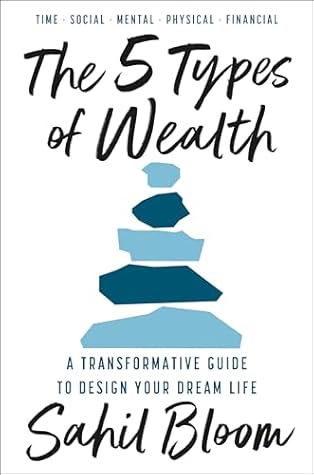More on this book
Community
Kindle Notes & Highlights
by
Sahil Bloom
Read between
March 5 - March 13, 2025
research has shown that ambivalent relationships create the most trouble for your physical and mental well-being.
Falling in love is easy. Growing in love is hard. Falling is what you see on social media. Growing is what you don’t see.
Growing in love is about developing and deepening a bond through discomfort, painful periods, darkness, hard conversations, and challenges.
Three areas to cover in the discussion: Personal Professional Relationship
The “helped, heard, or hugged” method is used by therapists, teachers, and counselors, but it is also immensely helpful in improving your handling of these everyday relationship situations; it allows you to give other people what they need.[19]
Doorknobs are questions or statements that invite the other person to open them and walk through. They invite the other person to start telling a story.
Mental Wealth is about building on the foundation of curiosity that encourages you to search, explore, question, and learn.
Mental time travel is a neat trick for self-reflection. In its simplest form, it involves separating from one’s present self and entering a past or future version of the self.
The fight against normalcy is the most important fight of your life. To maintain your uniqueness, to live on your terms in a world that pulls you to blend in, is the only way to realize your full potential and live a fulfilled, texture-rich existence.
three core pillars of Mental Wealth: Purpose: The clarity of defining your unique vision and focus that creates meaning and aligns short- and long-term decision making; the unwillingness to live someone else’s life Growth: The hunger to progress and change, driven by an understanding of the dynamic potential of your intelligence, ability, and character Space: The creation of stillness and solitude to think, reset, wrestle with questions, and recharge; the ability and willingness to listen to your inner voice
I focus on energy, not interests or passions. Follow your energy, because it is the truly scarce resource. When you have energy for something, you go deep on it, you push to grow, you gain life from it. It fuels you.
Feynman technique is a learning model that leverages teaching and prioritizes simplicity to help you develop a deep understanding of any topic. It involves four key steps: Set the stage. Teach. Assess and study. Organize, convey, and review.
What’s the problem you are trying to solve? We often waste time and energy trying to solve the wrong problem.
Socratic questioning takes time. It shouldn’t be used on low-cost, easily reversible decisions. But when you encounter a high-stakes decision with the potential for asymmetric rewards in your business, career, or life, it’s worth engaging in the exercise.
One win allows you to appreciate your progress. One point of tension allows you to get the topic off your mind and onto the paper. It’s therapeutic. One point of gratitude allows you to reflect on the most important things in your life.
The effortful creation of this new future canvas, which scientists refer to as episodic future thinking (EFT for short), cements an imagined future in your memory, meaning you can return to this “memory” and use its lessons to make changes or decisions in the present.
Your present self is the primary stakeholder in your world, but your future self is the direct heir of the long-term compounding of your actions in the present.
Your aim then becomes building Financial Wealth—through income generation, expense management, and long-term investment—up to the point where it enables that Enough Life that you have defined.
Cheap people care about the cost of something. Conscious spenders care about the value of something.
To feel good about money, you need to (a) know your numbers and (b) improve your money psychology by spending unapologetically on things you care about (and paying as little as possible for things you don’t).
World-changing CEOs aren’t the smartest people in their organizations. They are exceptional at aggregating data and communicating it simply and effectively. Data in, story out.
As a rule of thumb: Never think twice about making investments in yourself. Think twice about material purchases instead.


